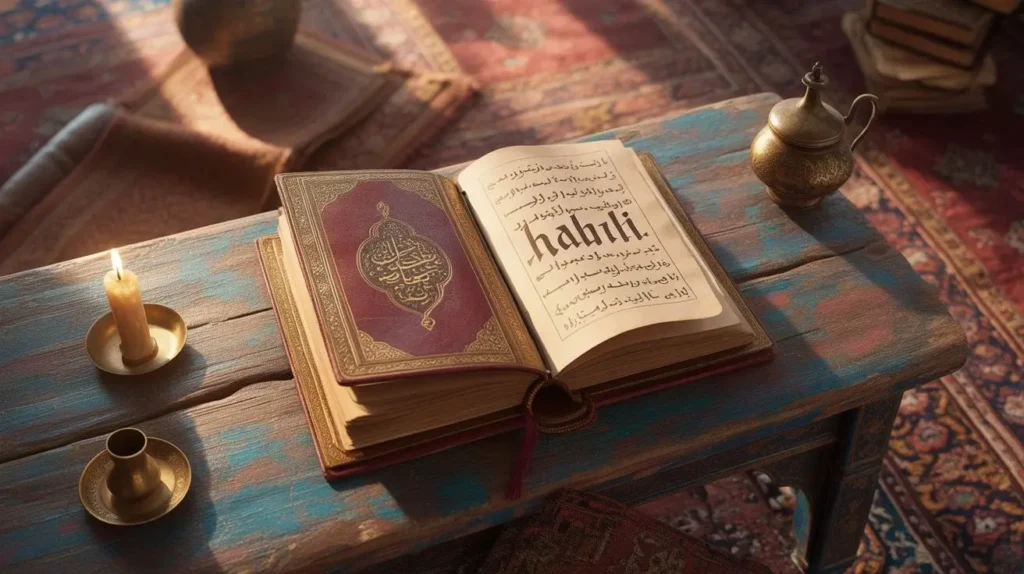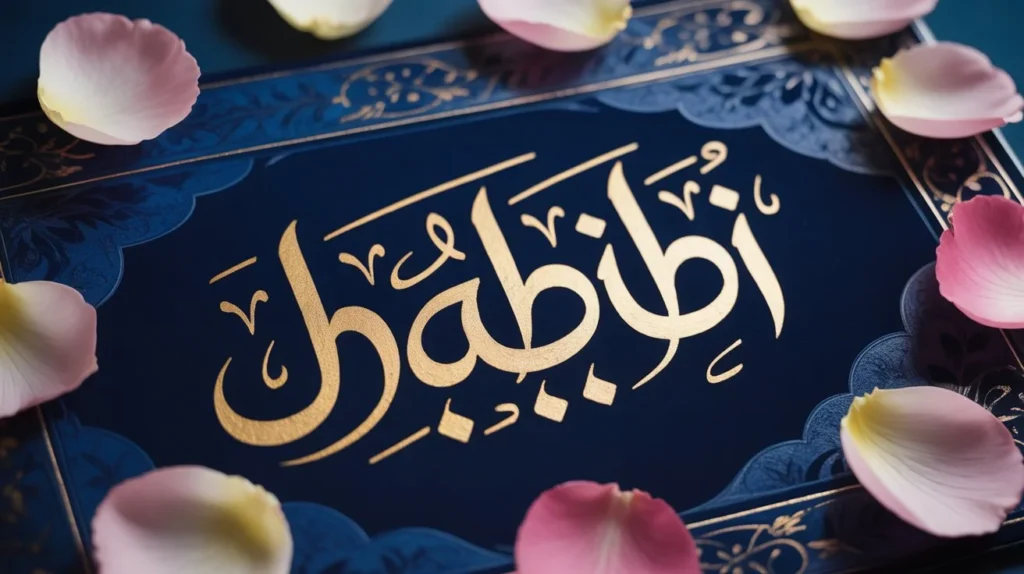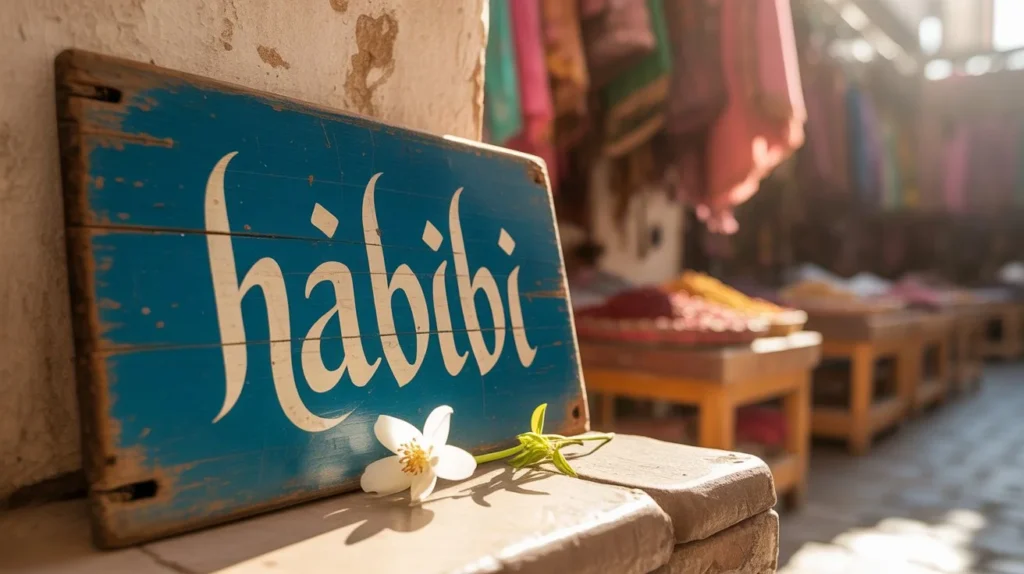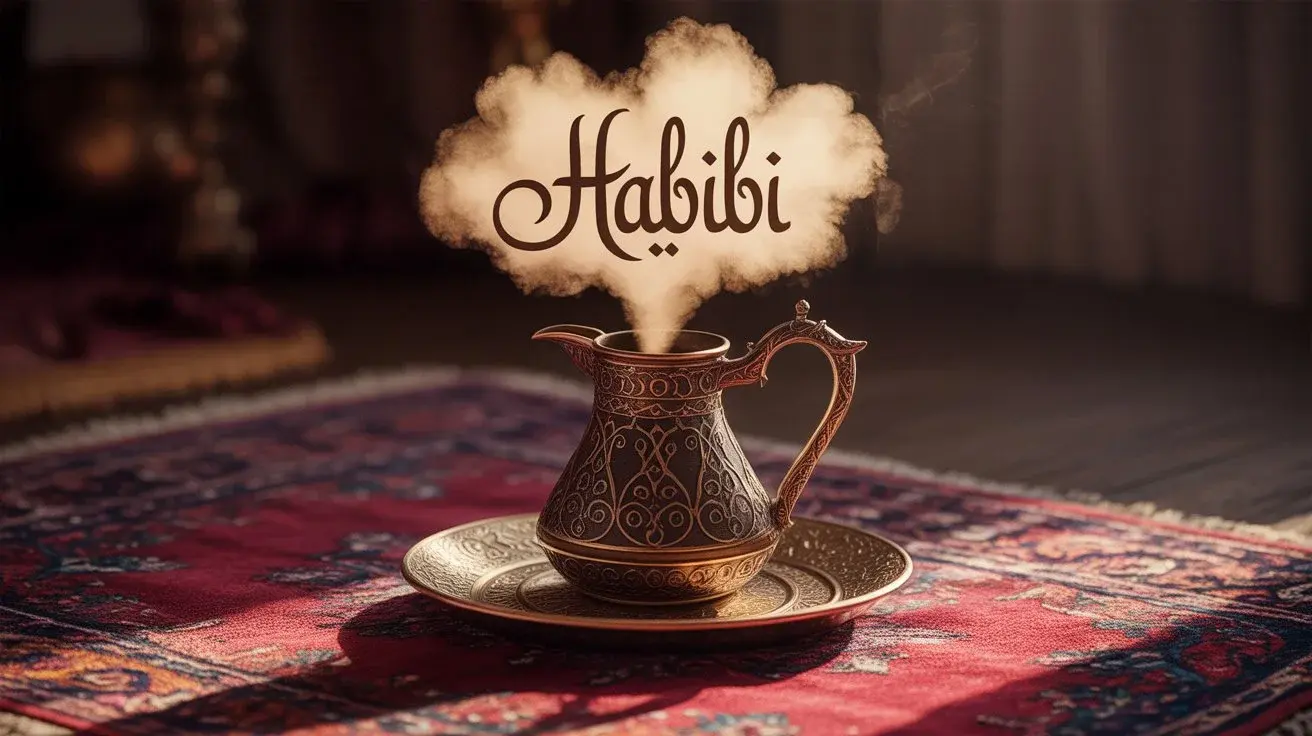When you hear someone say Habibi, it immediately carries warmth, affection, and intimacy.
But what does Habibi really mean? Is it just “my love,” or is there more behind this widely used Arabic term?
In this guide, we’ll explore its origins, cultural significance, variations, and how it’s used across languages like English, Urdu, and Hindi.
What Does Habibi Mean? Understanding the Word

At its core, Habibi (حبيبي) translates to “my love,” “darling,” or “dear” in English. This affectionate word is widely used in Arabic-speaking countries, both in romantic and friendly contexts.
Literal Translation
- Habibi / Habebi (حبيبي) – “my love” or “darling”
- Habib (حبيب) – “lover” or “beloved”
These terms come from the Arabic root word Hub (حب), meaning “love”.
Feminine Forms
Language reflects gender in Arabic. For females, there are specific forms:
- Habiba (حبيبة) – feminine version of Habib, meaning “my love”
- Habibti (حبيبتي) – informal and affectionate address for a female
Root Word and Morphology
Arabic uses suffixes to indicate possession:
- -i (ي) → “my,” as in Habibi = “my love”
- -ti (تي) → feminine possession, as in Habibti = “my love” (female)
Gendered Usage
- Habibi – male form
- Habibti / Habiba – female forms
Correct usage shows both affection and respect for gender norms in Arabic.
Transliteration and Pronunciation
Transliterating حبيبي into Latin script can be tricky. Most common: Habibi or Habebi.
- Pronunciation: Ha-bee-bee
- Stress and vowel length can vary by region, such as Levantine vs Egyptian Arabic.
Common Expressions with Habibi
Arabic is rich in affectionate expressions, and Habibi is central to many of them.
Everyday Phrases
- Ya Habibi – “Oh my love” (used casually or romantically)
- Yalla Habibi – “Come on, my dear” or “Let’s go, my love”
- These expressions appear frequently in songs, social media, and daily speech.
Romantic Usage
Couples often use Habibi as a term of intimacy:
“Good morning, Habibi. Did you sleep well?”
The tone conveys affection, warmth, and sometimes playful teasing.
Family & Friends
Habibi isn’t only romantic. Friends and family members also use it:
- Greeting cousins, siblings, or close friends
- Expressing care or empathy
Cross-Cultural Borrowing
Over time, Habibi has entered English, Urdu, and Hindi:
- English pop songs feature “Habibi” as a catchy term
- South Asian languages adopt equivalents: Mera Mehboob (Urdu) or मेरा यार (Hindi)
Examples in Sentences
| Context | Example |
| Romantic | “I can’t wait to see you, Habibi.” |
| Friendly | “Take care, Habibi!” |
| Music | “Ya Habibi, come dance with me!” |
Related Arabic Terms of Affection

Arabic has many words conveying love, each with subtle differences.
Alternative Endearments
- Ishqi (عشقي) – “my love” or “my passion”
- Hayati (حياتي) – “my life”
- Rohi (روحي) – “my soul” / “my soulmate”
- Qalbi (قلبي) – “my heart”
- Eini (عيني) – “my eye” / “my dear”
Lesser-Known Terms
- Ameli (أملي) – “my hope”
- Omri (عمري) – “my life/darling”
Cultural Significance
Arabs use multiple terms of affection to express nuanced emotions. Each word adds a layer of intimacy that “love” alone cannot capture.
Usage in Music and Media
Arabic pop music frequently features Habibi and its alternatives, emphasizing emotional intensity:
- Example: “Habibi Ya Nour El Ain” – Egyptian classic, translates to “My love, light of my eye.”
Comparative Analysis
| Term | Translation | Context |
| Habibi | My love / darling | Romantic & friendly |
| Ishqi | My passion / love | Romantic |
| Hayati | My life | Deep emotional context |
| Rohi | My soul | Soulmate / romantic |
| Qalbi | My heart | Emotional & affectionate |
Habibi in Other Languages

Habibi has transcended Arabic and entered other linguistic landscapes.
Urdu & Hindi Equivalents
- Mera Mehboob (میرا محبوب) – Urdu, “my beloved”
- Mera Pyaara (میرا پیارا) – Urdu, affectionate term
- Hindi approximations: डारलिंग, मेरा यार, य, यतम, दल बा
Borrowing in English
- Pop songs, social media, and movies often feature Habibi
- Used to convey exotic romance or familiarity
Transliteration Challenges
- Correct: Habibi / Habibi
- Common mistakes: Habebi / Habibti misused in informal English contexts
Semantic Differences
Tips for Using Habibi Abroad
- Understand context: romantic, friendly, or casual
- Avoid using in formal settings without cultural awareness
Grammar & Linguistic Insights
Morphology & Suffixes
- -i = possession (“my”) → Habibi
- -ti = feminine possession → Habibti
- Plural forms: Habibuna / Habibati (formal use)
Part of Speech
- Noun of endearment
- Can be used as subject or object:
“Habibi is always kind.”
Colloquial vs Formal
- Modern Standard Arabic (MSA) rarely uses Habibi
- Common in Levantine, Egyptian, and Gulf dialects
Sentiment & Tone
- Conveys warmth, love, and intimacy
- Friendly teasing or romantic passion depending on context
Code-Switching
- English speakers often mix Habibi with English words:
“Hey Habibi, let’s grab coffee.”
Common Misunderstandings About Habibi
Romantic vs Non-Romantic
- Non-Arabic speakers may assume every Habibi is romantic
- In reality, friends and family use it casually
Cultural Misinterpretations
- Western audiences may misinterpret affectionate slang as intimate intent
Overuse in Media
- Songs, memes, and social media have popularized Habibi, sometimes diluting emotional depth
Correct Usage Tips
- Use according to relationship type
- Respect gendered forms: Habibi for males, Habibti / Habiba for females
Mispronunciation & Mistakes
- Common: Habebi (wrong spelling), Habibti used incorrectly
- Correct pronunciation ensures clarity and cultural respect
Fun Facts & Trivia

Habibi as Names
- Sometimes used as first name, surname, or business name
- Represents love, warmth, and positivity
Habibi in Global Music
- Used in Western pop songs and international collaborations
- Example: Shakira’s “Habibi” featuring Arabic phrases
Meme Culture
- Viral phrases like “Ya Habibi” circulate online
- Shows playful adoption outside Arabic-speaking communities
Historical & Literary References
- Arabic poetry often features Habibi, showcasing romance and passion
- Classical literature uses it metaphorically to express love and devotion
Interesting Comparisons
- Similar words exist in other Semitic languages, e.g., Hebrew Chaver (“friend”), emphasizing closeness
Conclusion
Habibi is more than a word. It’s a cultural symbol of love, affection, and intimacy, with layers of meaning that vary by context, gender, and relationship.
From romantic partners to close friends and family, this Arabic term carries warmth that resonates across languages and cultures.
Whether you use it in Arabic, Urdu, Hindi, or even English, understanding its proper usage ensures your message of love and affection comes across beautifully.

Mariah Cannon is the creative mind behind Pikuplab.com, crafting engaging, high-ranking content with expertise and precision.
With a talent for turning ideas into impactful words, Mariah brings value to every article.

